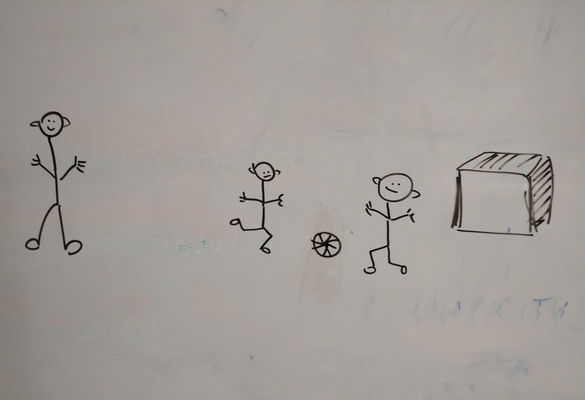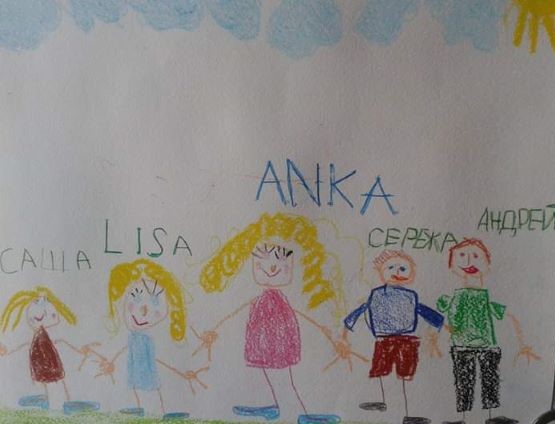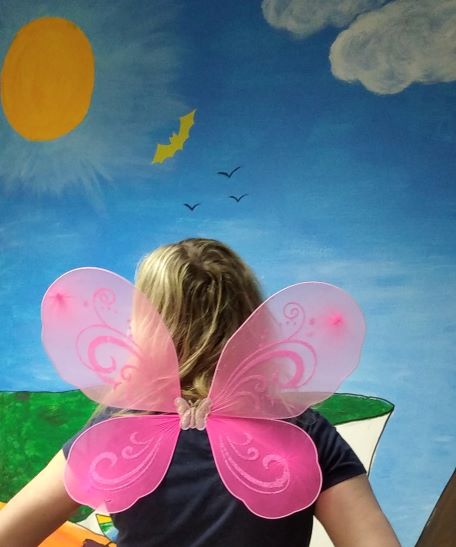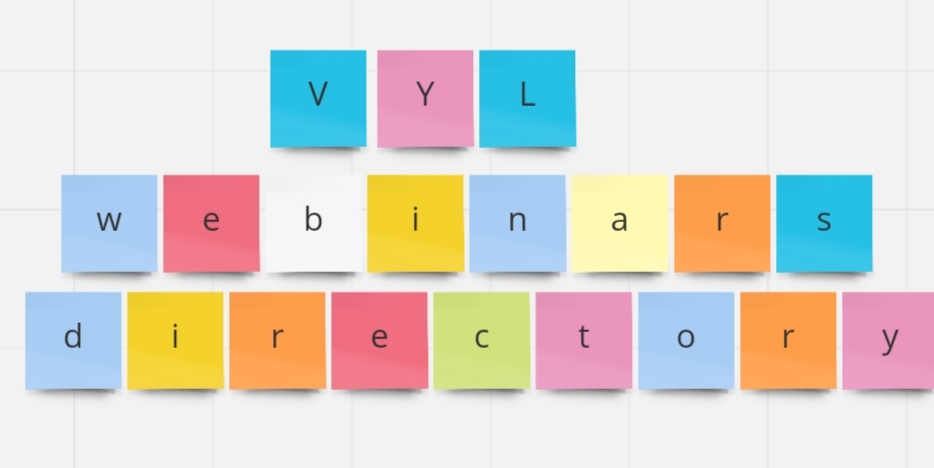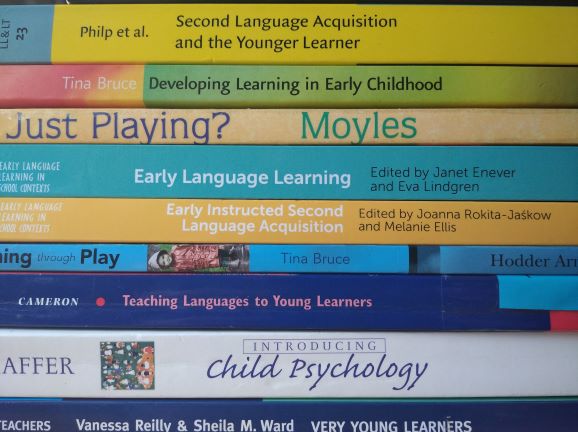
This post will start from the summarising comments: experienced teachers (including trainers) should be observed by the less experienced teachres because both parties can benefit from that immensely.
There were countless occasions on which I was observed…
These involved the standard developmental observations done by my supervisors and mentors, follwed by a grade and a feedback on my teaching skills and my teacher training skills. Then, there were the newly qualified teachers or the teachers who were novices in a particular area who would visit pretty much every other lesson at the start of the academic year, in September and October. Then, there were also teachers who were struggling and needed support in one area or another and they were likely to pop in throughout the entire year. Then, there were also the teachers on our teacher trainining courses who had to clock in a certain number of classes observed (the IH CYLT course) or who just wanted to see a colleague and a mentor in action (the IH VYL course). Multiply that by ten and a half years of my work as an ADOS and add a number of your choice for my pre-ADOS career years and you get quite a few hours when you are not the only specialist in the room. Then, just for the sake of keeping the numbers’ right, I should throw in all the hours of the lessons recorded for the marketing department and all the times when I had a whole crowd in the classroom, observed by the parents in all the open classes…In a nutshell: I have been observed a lot. Nothing, however, has ever come close to the stress of the observations that I am yet to include here, namely: when the trainer is observed by trainees co-teaching on the course.

Co-teaching with your trainees and what to hate about it…
Normally, it was not our standard practice on the IH CYLT course that the trainers would be taking part in the teaching although I did hear that my colleagues at BKC IH Moscow did it on the CELTA courses regularly. However, there were a few occasions, over the years, when some of my trainees would get sick and we ran very intensive courses, we had very little flexibility and a quick cover had to be found. And this cover was me, the main course tutor.
Obviously, one would expect that the most experienced teacher in the group could raise up to the challenge and just step in and that it would be this particular person to do it with the minimal resources involved (creativity, preparation time, stress and so on). At least, in comparison to everyone else present.
It is all true and ‘they lived happily ever after’ in this particular story, however, I will be honest and I will tell you that throughout a large part of that experience, I was filled with resentment and stress.
Partially, it was due to the fact that I knew I would be observed by a 12-strong group of people whom I had been training, guiding and assessing for the past two weeks. I was aware that ‘my reputation’ was, to some extent, at stake. No matter how experienced you are and how confident you are as a professional, this particular prospect would be very difficult to dismiss in my opinion. There are lessons that I am not entirely happy with and, yes, they are an opportunity for reflection, development and improvement but when a group of people who are also your trainees are to be witnesses to this potential reflection, development and improvement, it is very difficult to be entirely calm about it. I know I was not, not when it happened the first time.
What is more, I was just angry that I had to do it because it all felt like some catch 22 situation. On the one hand, a good-quality lesson was expected of me and my trainees made sure that I knew that. ‘Oh, Anka, I am so happy that I will be able to see you with students’. On the other hand, my great lessons are such because I do have time to plan them and to prepare for them. Charisma is a nice thing to have but you reap what you sow and on this particular occasion, as the main course tutor with all the duties involved, admin and otherwise, there was very little time for me to get ready for ‘the show’ in front of the kids and in front of the trainees.

…and what to love about it.
To start with, it was definitely one more bridge to cross for me, as a teacher and as a trainer, an opportunity to expose myself to a different kind of stress and to develop some new levels of professional immunity. The first time was stressful but only the first one, especially for the teacher – teacher trainer.
My students enjoyed the lesson and I met my aims fully. I had a lot of fun teaching them and, to be honest, the stress and the anger and all the other unwelcome feelings died out as soon as I got up and into the front of the classroom, in front of my teens. They were simply gone. I was about to start teaching and all the irrelevant things had to give way. I was calm and focused.
Despite all the obstacles, I managed to put together a good lesson. I was to introduce comparatives and superlatives and, somehow, I found a connecting element and a way of generating a lot of lanugage from the kids in a rather clever way. Because of that, my trainees got a decent lesson to observe and, hopefully, to learn from. Another aim – fully met.
As a trainer, I did appreciate all the feedback that I received in the feedback session, although, I had to be careful not to forget to bring back all the areas that could be further improved because my teachers were more likely to focus on the positives and perhaps did not have enough confidence in their own beliefs to confront me about the weaknesses of the lesson or the activities. From that angle, it was also an interesting experience for me as I had to step back and try to see my lesson from a distance.
The most precious comment that was made came from Vika, who, apart from being my trainee, was, at the time, also a mother of one of my students and she had many opportunities to observe me in our open lessons. She told me that on that day she watched me, surprised, having seen me many times in a classroom with pre-primary and primary kids as a mum of one of them and she was expecting to see that same in a teenage lesson. What she was a completely different teaching persona and attitude.

Co-teaching with your trainees. The most beneficial experience so far
There is always more and that is the case here, too because two years ago we decided to include trainer teaching as a permanent element. The first teaching day on the course is always the day when everyone is teaching in order to break the ice with the students and with the situation, to feel the class and to get at least some of the stress out of the way. The lessons are always short, limited to pretty much one activity and it is an unassessed teaching practice. When we were running the course in the summer 2021, we had a small group of teachers and a long, three academic hour lesson. Esentially, there were some time slots left and we did not want to single out and to overload anyone and I took these free slots in both groups, with the teens and with the juniors.

It was a positive experience for me because
- As a teacher, I had more time to plan
- I had more flexibility and influence on the content because it was always the first lesson and the unassessed one and even though my mini-lesson had to combine with all the other ones in the day for the benefit of the students, there was a lot less pressure althogether. I knew that in the worst case scenario, even if I did not meet my aims at all, I would not be messing up my trainees’ lessons.
- For the trainer, it was a unique bonding activity, because, despite the experience and the status (even now I cannot but giggle here, being serious about my status and being proud of my achievements are two different things, for me, as they have always been), I was one of them for a day and we all had to go through the stress of facing a new group of unknown students and we all had to prepare a plan B or C for all the possible scenarios
- I was able to share some of my ‘first lesson tricks’ and ‘the uncharted territory tricks’ and ‘flexibility tricks’ with them and I hope that because that, perhaps, they were better prepared for these first lessons on the course as well as for the other first lessons in the future. I would like to think that it even added to my credibility as an expert because I was in a situation when I would have to do exactly what I preached. Which is not to say that without this option, the tutor’s credibilty would suffer in any way or that it needed to be enhanced in the first place. It did feel different, though, better.

It was a positive experience for my trainees because
- For this one lesson, they had the trainer (aka the master and commander, giggles ensue) completely on their side and not only because that is what a good trainer would do but, because, literally, we were all in the same boat.
- The trainer was, for a day, playing two roles: this of a mentor but also this of a more experienced peer, actively participating in the lesson planning session and sharing what she was planning to include in her mini-lesson and why.
- Then, in the feedback session, the same teacher was able to look at how the lesson went, to reflect on that and to evaluate her own performance. The teachers were very much involved in that process, from the beginning until the very end.
- There were two lessons of that kind and two cycles and the second one, a slightly more challenging and a slightly more imperfect (due to a bigger discrepancy between the group we were planning for and the actual group in the classroom) was even more beneficial for the trainees, not only because of the mistakes that we could learn from but, most importantly, I want to believe, from this very attitude to a lesson that was not quite up to our expectations and standards. We make mistakes to learn after all and I hope that I could model that attitude, too, on that course.
- Even during the lesson planning, which we did as a group, I could see the positive influence of the experienced teacher that I was. Or the easy-going or even the reckless teacher that I was (and I am). I coud see that my attitude had a calming effect on them. ‘There is no need to overplan here, we do not know the kids and, hence, we do not know what is up to their level, what is going to be overchallenging or underchallenging. We can relax’. Naturally, they wanted to do their best, on the first day and throughout the course, but, at this point, back then, this perfectionism and the inducing stress were simply not necessary.
Overall, as I have already mentioned, this has been a very positive experience and, if I have a chance to choose which way to play the game, I will be choosing teaching with and for my trainees.

Happy teaching! Happy training!

